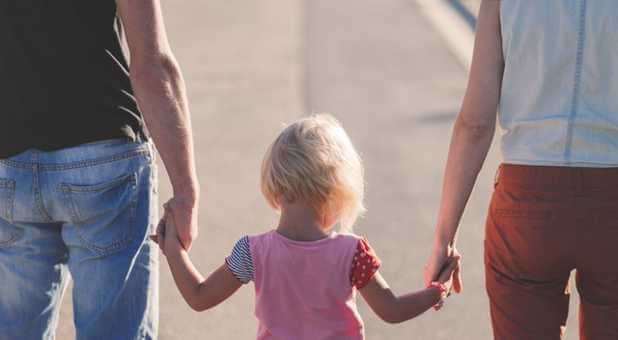In the last year my husband, John, and I have adopted four girls, ages 11–16, from foster care. When they first started doing weekend visits we learned a lot about them—their likes and dislikes, their hopes and their fears. How? Often something in our home would trigger a memory, and they would launch into a story. We learned about how they ended up in foster care, their first days of school, and the events that molded their personalities.
In addition to sharing their stories, our girls often asked us to share ours. It never failed that after they got ready for bed they’d want to hear a story. They didn’t want us to read from a fictional book (although that often happened, too). They wanted to hear about us, about our lives.
Throughout the last year, the stories have not only been entertaining, but they helped our children understand us and our family culture. These stories have bonded us and have helped our children understand why we became who we are. Have you shared important stories from your life with your kids? If not, here are ones to start with:
1. The story of your salvation. Your children may think you always believed in God, never struggled, or never questioned your need for God in your life. Later when they have doubts, struggles and questions they may think they are all alone. Share about your journey to believing in Jesus and dedicating your life to Him. If you became a Christian at a young age, share about other faith steps as you grew older. How did your faith change and grow throughout the years?
2. A story of a vivid childhood memory. It’s hard for our children to picture us a kids, yet it’s our childhood that shaped who we are. One vivid memory I’ve shared is how my stepdad dropped me off at the wrong house for a birthday party when I was 5 years old. I didn’t know the strangers and had no way to contact my parents. I ended up walking a few miles to my aunt’s house with the person from the house driving behind me the whole way. That story gives a hint about my childhood, and it also explains a bit of my independence. Finally, that story explains why I’m so cautious with my own children. It’s amazing how much about me can be explained by one vivid, impactful event.
3. A story of your romance and marriage. This is one of my children’s favorite stories to hear, and they love hearing it from both me and my husband. They love asking questions about when we first noticed each other, our first date, and how the romance progressed. I’m pretty sure they’ve asked to hear the story of my husband’s proposal a dozen times. We not only share moments during our dating that brought us together, but moments that almost pushed us a part. I’m learning that our stories help them understand the beginning of our relationship and provide insight into our marriage today.
4. A story of your biggest regret. This is possibly the hardest story to share with my children, but it’s also important. Personally, my biggest regret was having an abortion when I was 15 years old. It’s a choice I would change if I could go back in time, but it’s also a regret that has impacted my life and molded my choices. Because of my bad decision I’ve dedicated a lot of time in helping others make good choices. I’ve helped start a crisis pregnancy center, and I mentor teenage mothers. Even though it’s hard sharing our regrets, it’s important for our children to understand how fears and self-focus led us to make bad choices. It also humbles us. Finally, our vulnerability opens the doors for them to approach us in the future when they struggle.
5. A story when you discovered purpose. When did you discover your unique gifts and talents? How did you find your career path? What hobbies give you joy? Our kids often struggle with who they are. They want to be like everyone else, even though we understand it’s their uniqueness that will set them apart. Sharing stories of how you discovered your purpose will also help your children understand who God created them to be.
So, have I convinced you to opened up your heart and life? If so, here are just a few more short tips to help you:
- Make your stories age-appropriate. You can add more to your stories throughout time.
- Share the good, the bad and the ugly. Our kids already know we’re not perfect. Being vulnerable encourages them to do the same.
- Don’t force your story down their throat. If they don’t seem interested, wait for a different time. I found that my kids are often eager to hear my stories at bedtime when the house is quiet and there are no distracting electronics.
- Finally, include God’s point of view. Did your choices make God angry? Share that, but also share about His forgiveness. Can you imagine your decision making God jump for joy? Share that, too. Every decision in our lives impacts God in some way. Our children need to understand this, too.
Now, how about you? Have you shared stories of your life? Which ones? I’d love to hear how your stories have impacted your kids, too!
Tricia Goyer has written more than 35 books, including both novels that delight and entertain readers and nonfiction titles that offer encouragement and hope. She has also published more than 500 articles in national publications such as Guideposts, Thriving Family, Proverbs 31, and HomeLife Magazine.











































